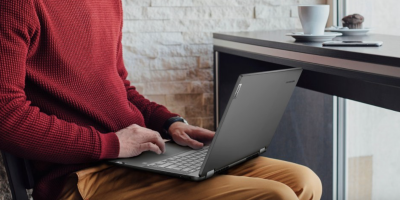As we are living in the COVID-19 era, smartphones have become one of the most crucial devices for organizations and millions of people worldwide. On the contrary, their security limitations have been exposed to another level. Therefore, organizations, small businesses, and individual users must give much-needed importance to mobile security as and when required.
Here is the list that includes different trends that will influence mobile security in 2021 a great deal.
Remote workers will keep relying on smartphones
As we all know, companies or businesses are still trying their level best to adapt to the COVID-19 crisis in 2021. Therefore, remote working has turned out to be an important facet of our daily lives.
When it comes to performing professional tasks appropriately, remote workers tend to rely on their smartphones to a certain extent. The best thing about these mobile phones is that they can access business data to complete their important official activities without any hassle.
The story does not end here as they can also use their personal smartphones to access their favorite online streaming services like Netflix, BBC iPlayer, Hulu, HBO Max, Disney Plus, etc. as revealed by howtowatchinaustralia.com.
This way, they can watch a plethora of TV shows and movies on their smartphones as per their preferences. That said, mobile phones of remote workers have become an easy target for hackers, scammers and other cyber terrorists.
Thus, they should follow some cybersecurity measures in a proactive manner to secure their smartphones from numerous security threats accordingly.
For that reason, they can install antivirus software that helps them protect their mobile phones from malware and other cyber risks comprehensively. Besides, they must update their mobile phones regularly to keep their crucial smartphones up and running all the time.
Authentication through smartphones will become a reality
If organizations or companies want to authenticate their remote employees without any difficulty, they should depend on continuous multi-factor authentication (CMFA) approach.
In reality, remote workers can easily follow the CMFA approach on their smartphones. According to this method, they have to use numerous behavioral and identity traits that allow them access their required corporate networks securely from anywhere. From an employer’s point of view, they are in a better position to provide access to their enterprise systems to only authorized remote workers.
Considering the consequences of cyber threats across the globe, the CMFA approach will be accepted and followed by a number of organizations in the coming years.
A debate around smartphone security will be continued
Unfortunately, both Android and iOS platforms are prone to numerous cyber risks. Therefore, the debate around smartphone security will remain a hot topic for enterprises and professionals in the coming years.
During 2020, we have witnessed that mobile phones were targeted by hackers, identity thieves and other cybercriminals in huge numbers. Furthermore, this trend will continue to rise in the current year and the future at an alarming rate.
In this situation, all the stakeholders will have to come up with an idea that will allow them to secure the users’ data residing on iPhones and Android smartphones appropriately.
Mobile payments will increase in 2021
According to a recent report, mobile payments will be increased to $130 billion in the US alone by the end of 2020. Surprisingly, there were only $12.8 billion US dollars spent in terms of mobile payments in 2012.
The above situation indicates that mobile payments will increase at a rapid pace in 2021. Therefore, the importance of mobile app security has grown to the next level considering the sudden rise in mobile security threats in recent years.
Apart from this, different factors will play a key role in enhancing the trend of mobile payments worldwide. These factors include global coronavirus pandemic, increase in e-commerce including online shopping, etc.
There is a strong likelihood consumers will turn to mobile apps for online shopping and other purposes in great numbers. However, not all things are rosy with mobile payments.
Unfortunately, various online retail apps do not offer the desired level of privacy and anonymity to their users. As per the latest report of Guardsquare, 23% of the 51 Android mobile apps are insecure and can harm the online privacy of their users.
It means hackers can make the most of the security vulnerabilities found in these online shopping apps and achieve their illegal objectives by jeopardizing the privacy of users eventually.
If companies or organizations working in the e-commerce sector do not improve the security of their mobile apps, there are chances they can easily lose their customers’ trust. Consequently, it will create a negative impact on their credibility or goodwill in the long run.
Wrapping Up
Securing your smartphones from the prying eyes of cyber goons is in your hands. Once you have considered these above-mentioned key trends, you can improve the security of your smartphones including iPhones and Android mobile phones by updating your smartphones and following other cybersecurity measures accordingly.












Comments